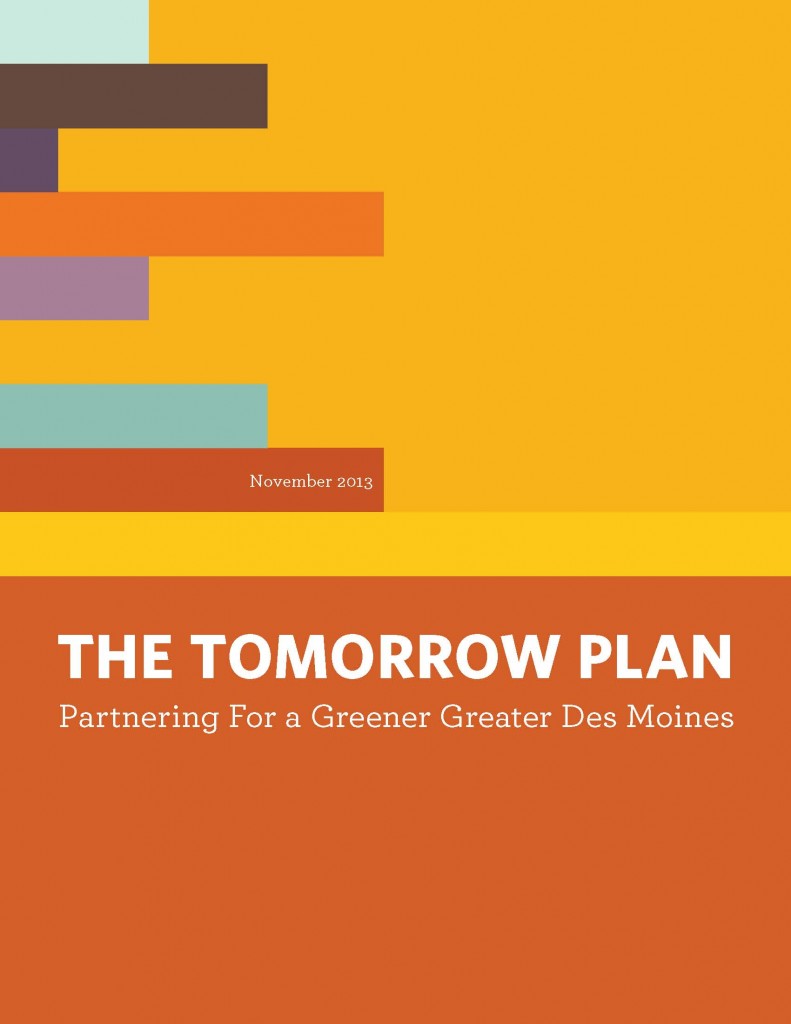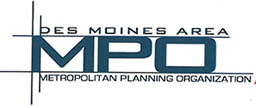Today, the Des Moines Area Metropolitan Planning Organization (MPO) formally approved The Tomorrow Plan, the Greater Des Moines region’s plan for a more sustainable future. The planning process started three and a half years ago with regional leaders seeking to increase collaboration between seventeen cities and four counties in the region. Now, these same leaders have a blueprint to help guide development through the year 2050.
“With the completion of their master plan, the Greater Des Moines Metropolitan Planning Organization has taken an important step towards creating a more dynamic future for the region. The master plan builds on and integrates previous local short- and long-term economic growth plans, and takes into consideration elements like transit systems and public health,” said Salin Geevarghese, Acting Director of HUD’s Office of Sustainable Housing and Communities. “This is the type of strategic, community-driven planning that the Partnership for Sustainable Communities believes can help communities achieve a more prosperous and economically resilient future for Des Moines and its surrounding communities.”
The Tomorrow Plan sets the stage for a new era of regional cooperation and efficiency in Greater Des Moines. It envisions a vibrant, lasting future for Greater Des Moines – a future brimming with choice that attends to the economic, social, and environmental needs of the region.
Polk County supervisor and The Tomorrow Plan co-chair Angela Connolly commented, “It is significant and encouraging to see 17 communities come together to create and support a plan that improves our quality of life and the well-being of our residents.”
The plan centers on four major goals related to the economy, the environment, quality of life, and regional cooperation, and offers a holistic view in looking at how these systems interact with one another.

Polk County Housing Trust Fund Executive Director Eric Burmeister explained that it “is time to embrace the need for a strategic regional plan that provides affordable housing in places adjacent to transportation, services, and job centers. Long-term economic growth for the region depends on a diverse workforce with appropriate affordable housing options.”
“The power of The Tomorrow Plan is having a shared vision for growing the region sustainably,” said Elizabeth Presutti, a member of the Steering Committee and the General Manager of the Des Moines Area Regional Transit Authority (DART). “I especially look forward to continuing the conversation about how to smartly coordinate our land-use planning and multi-modal transportation planning to achieve sustainable regional development.”
The Tomorrow Plan truly is the community’s plan. Its development included unprecedented support and enthusiasm from residents, community organizations, and elected officials. All told, the planning team made approximately 26,000 contacts throughout the planning process, representing the most robust public engagement effort in the region’s history.
“Having such a strong representation of young professionals was a key to making the entire process successful. With The Tomorrow Plan impacting the planning and development of Greater Des Moines over the next 40 years, it is exciting to know that the plan includes the needs and encompasses the lifestyle of the next generation,” said Steering Committee member and past Young Professionals Connection president Jason Wells.
Now, the MPO-led team will again look to community partners and residents to help implement the plan. To begin down this path, Des Moines city council member and MPO chair Chris Coleman today appointed an 11-member committee to guide the development of the MPO’s next long-range transportation plan.
“Our metro has done something most are afraid to do. It is not always easy to cooperate and compromise, but we are so appreciative of the thousands of residents who have helped shape this plan. The Tomorrow Plan is a blueprint for a metro area that has lower taxes and a higher quality of life than the rest of the country and world. It’s what we call sustainable,” stated Coleman.
The Tomorrow Plan is available for download at http://www.thetomorrowplan.com/ttp-final-report/ and was made possible by a $2 million grant from the US Department of Housing and Urban Development’s Sustainable Communities Regional Planning Grant program and by over $1 million in local in-kind resources.
###
For more information, please contact Bethany Wilcoxon (bwilcoxon@dmampo.org or 515.334.0075) at the Des Moines Area MPO.




